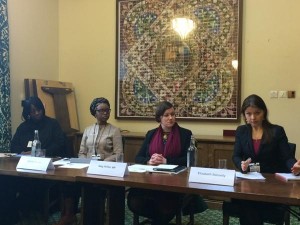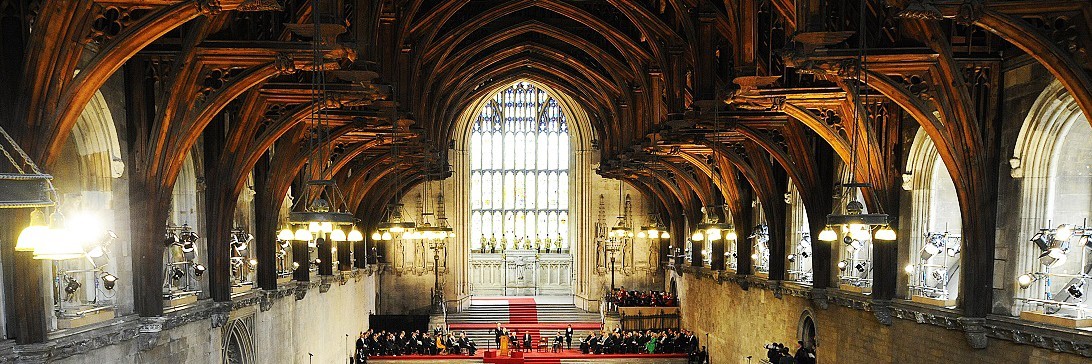The All-Party Parliamentary Human Rights Group (PHRG) attended this panel event organised by the Commonwealth Parliamentary Association (CPA). The purpose of the event was to brief Members, staff and civil society on the postponed Nigerian election.

The event was chaired Chair by Meg Hillier MP. The speakers were as follows:
- Elizabeth Donnelly, Assistant Head and Research Fellow, Africa Programme, Chatham House. (“ED”)
- Zainab Usman, doctoral candidate in International Development, University of Oxford. (“ZH”)
- Titilola Banjoko, Nigerian diaspora activist. (“TB”)
The key points raised during the meeting were as follows:
- The competition between the two party leaders is perhaps the closest ever seen in Nigeria. The elections now rescheduled for March 28th is a crucial moment for Nigeria’s democratic consolidation. (ED)
- The latest the elections can legally be held is 27th (ED)
- The risk of security agencies being overstretched is real. There are 120,000 polling booths and only 300,000 policemen. But these issues were known about long before the announcement to postpone the election. (ED)
- Public confidence in the Government is very low and many argue that the postponement was about political positioning rather than security. (ED)
- There are fears of further delays, which would risk severe instability. The threat of violence is compounded by reports of an influx and stockpiling of small arms. (ED)
- The key issues facing the country are often overlooked in the political campaigning, which has been bitter between parties. There is also a tendency to manipulate religious and ethnic differences during elections which increases the possibility of violence, as citizens become personally invested in the outcome. (ZU)
- The different potential outcomes of the election will present different challenges. If elections remain on hold, instability is likely to increase. There might be a run-off election if no majority achieved. If current President Jonathan Goodluck wins, the legitimacy of the results will be contested. If Buhari’s party is successful this would mean a huge power shift, and generational shift, for the country. (ZU)
- There is increasing inequality in Nigeria. Now 17,000 individuals own 17% of the GDP. Elites manipulate the poorer population for their own gains. (TB)
- As Nigeria’s democracy develops, the public’s expectations and demands of the Government are increasing. (TB)
The PHRG will continue to follow developments in Nigeria closely.

